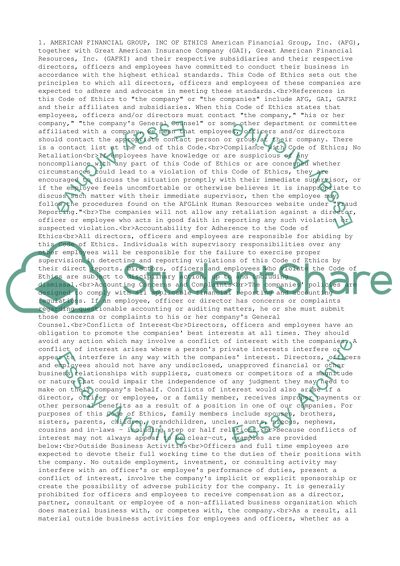Corporate Code of Ethics Project Assignment Example | Topics and Well Written Essays - 250 words - 1. Retrieved from https://studentshare.org/business/1629087-corporate-code-of-ethics-project
Corporate Code of Ethics Project Assignment Example | Topics and Well Written Essays - 250 Words - 1. https://studentshare.org/business/1629087-corporate-code-of-ethics-project.


